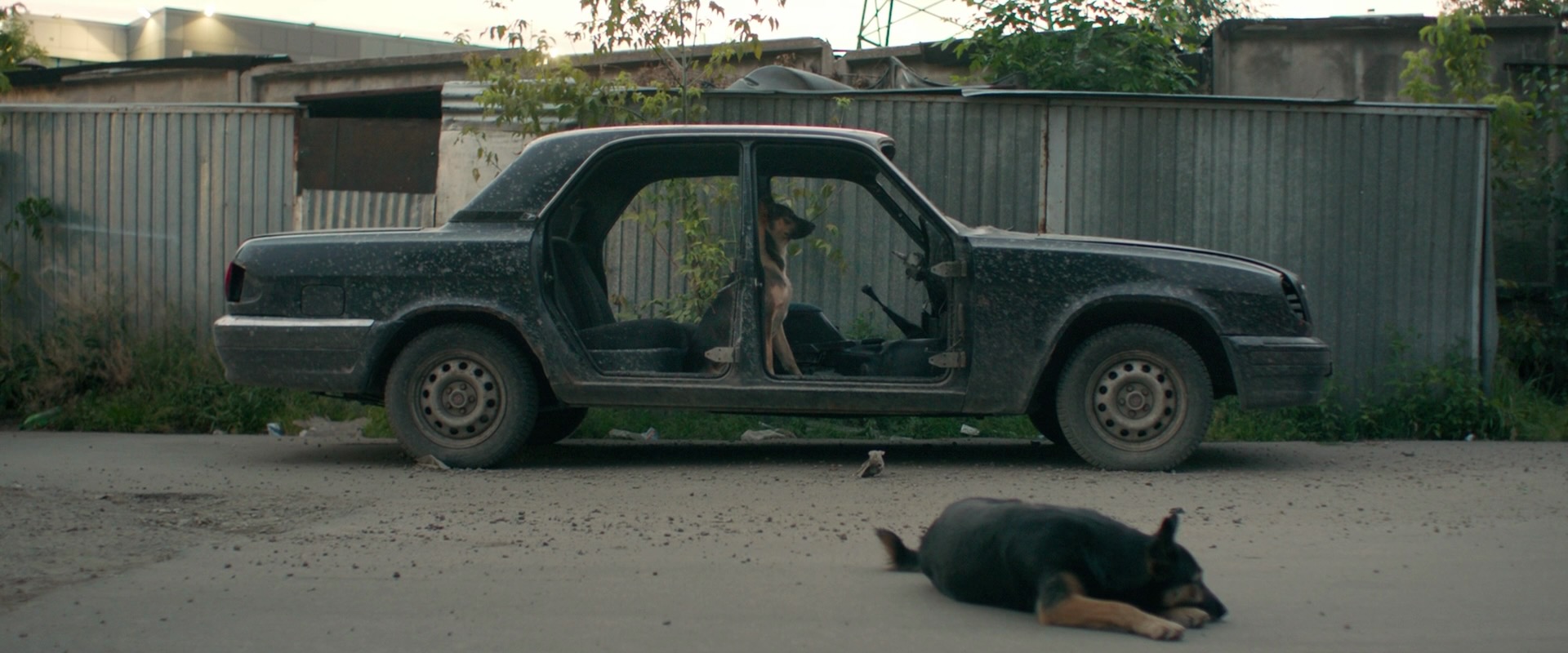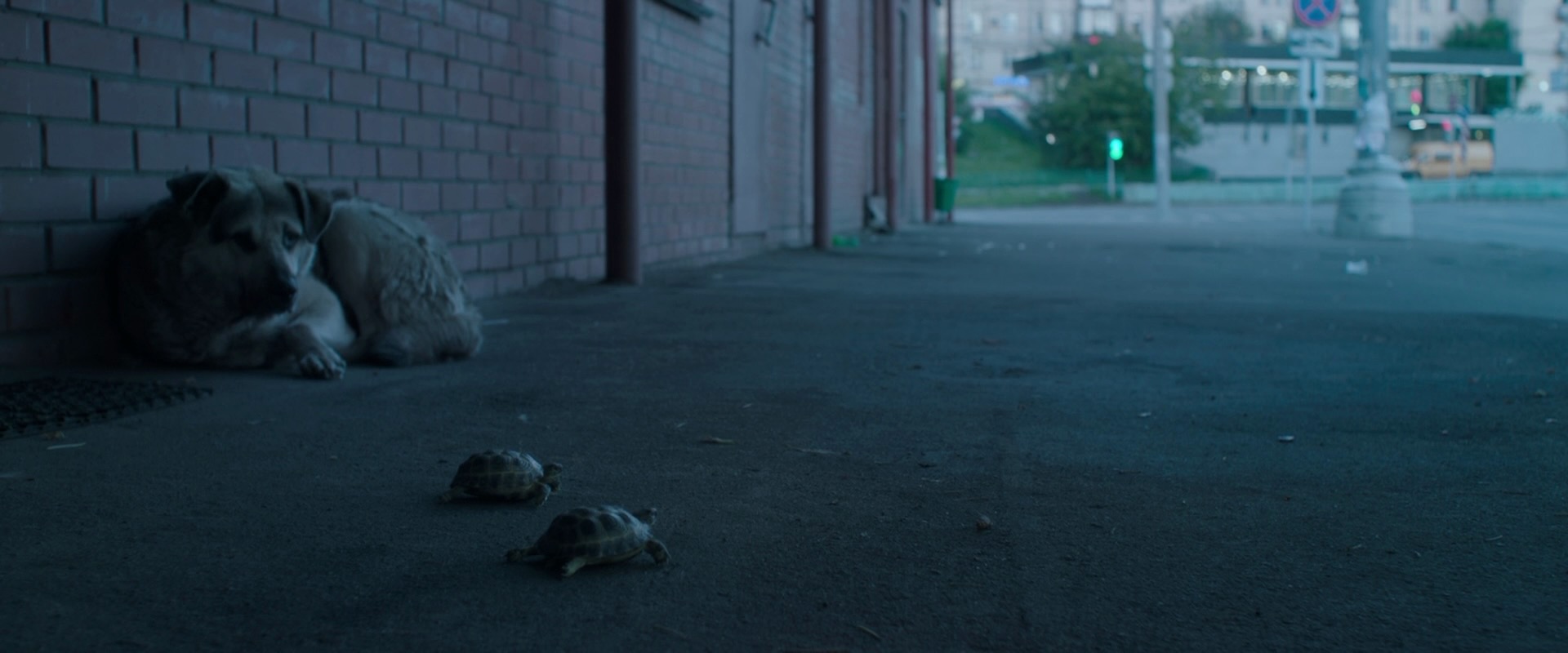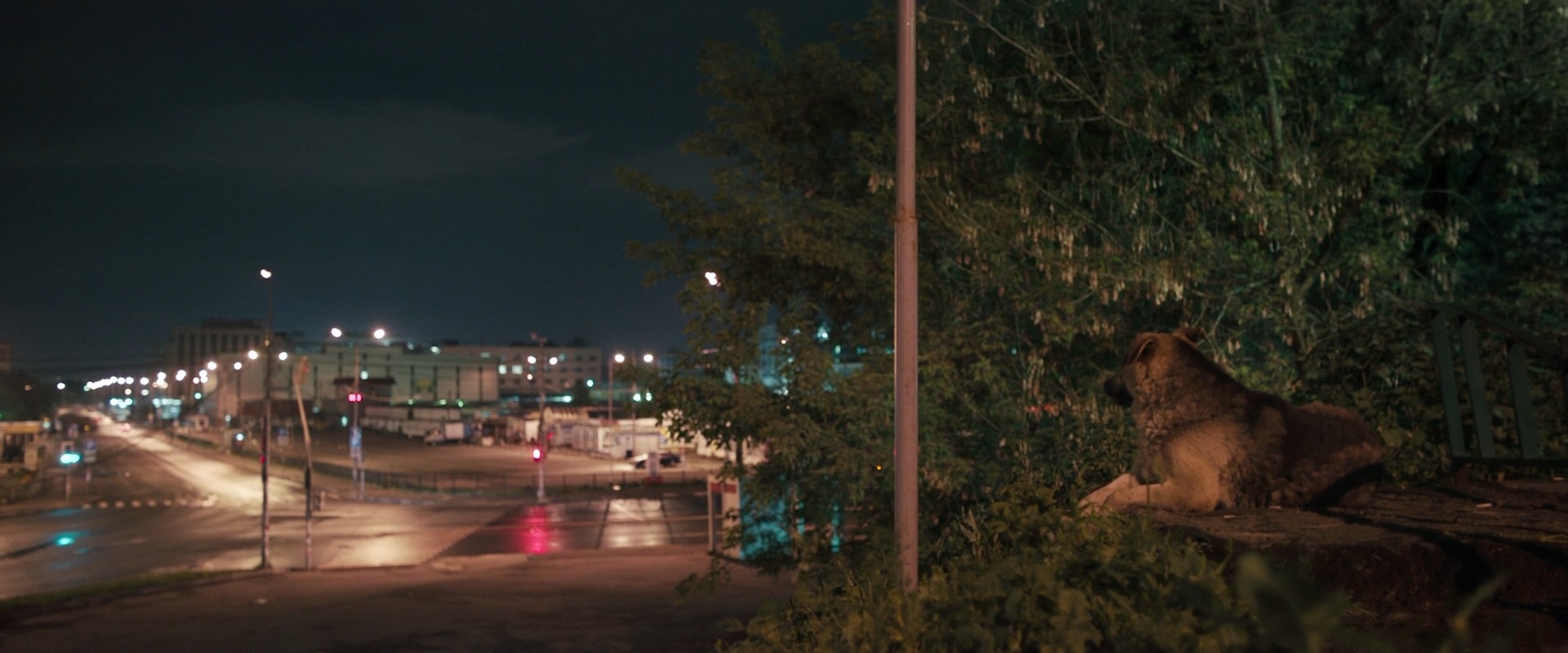I did not like the lab scene where they implanted an eXistenZ gamepod port into a dog’s underside. After that, I felt free to skip ahead during the other b/w lab horrors. Observational long takes of Moscow street dogs pays off when one is filmed catching and killing a housecat. Or maybe “pays off” isn’t the term, since Kedi played theaters across the country, and this one played nowhere. Narrator (the star of Leviathan) tells of Russia’s history of firing animals into space, intercut with observational doc scenes of Moscow street dogs. The directors followed up with another Moscow street dogs movie, and their first film about people debuts in a couple days at Locarno. The Tori Amos song > the movie… Katy’s least-favorite shorts director edited.

The directors didn’t have space in mind when they started filming [Seventh Row]:
Suddenly, when we found out that Laika had been living on the streets, the film became so rich. These street dogs we see in the film are real explorers. They have to be in order to survive. They have to understand every movement in the city. They have to know how the city is changing and how they can find a place to stay and survive. We found it interesting that there were similarities between these dogs and their ancestors, the heroic cosmonaut dogs.















